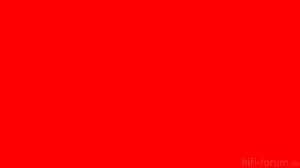rot
英 [rɒt]
美 [rɑːt]
- n. 腐烂;腐败;腐坏
- vi. 腐烂;腐败;堕落
- vt. 使腐烂;使腐朽;使堕落
- int. (表示厌恶、蔑视、烦恼等)胡说;糟了
- n. (Rot)人名;(法、德、俄、塞、捷、瑞典)罗特
使用频率:

中文词源
rot 腐烂,腐败
来自古英语 rotian,腐烂,来自 Proto-Germanic*rutona,腐烂,可能进一步来自 PIE*red,撕,咬, 词源同 rodent,rat.
英语词源
- rot
-
rot: [OE] Rot goes back to a prehistoric Germanic *rutjan, which also produced Dutch rotten. It may be related ultimately to Latin rudis ‘rough’, source of English rude. The adjective rotten [13] was borrowed from Old Norse rotinn, which came from the same Germanic stem as produced *rutjan. The mild imprecation drat [19] is a conflation of God and rot.
=> rude - rot (v.)
- Old English rotian "to decay, putrefy," from Proto-Germanic *rutjan (cognates: Old Saxon roton, Old Norse rotna, Old Frisian rotia, Middle Dutch roten, Dutch rotten, Old High German rozzen "to rot," German rößen "to steep flax"), from stem *rut-. Related: Rotted; rotting.
- rot (n.)
- early 14c., from rot (v.) or of Scandinavian origin (compare Icelandic rot, Swedish röta, Danish røde "decay, putrefaction"), from the root of the verb. Slang noun sense of "rubbish, trash" is from 1848.
权威例句
- 1. It took internal whistle-blowing and investigative journalism to uncover the rot.
- 是内部检举和调查性报道揭露了这一腐败事实。
- 2. Condensation will eventually cause the fabric of the building to rot away.
- 冷凝作用将最终使建筑结构腐朽掉。
- 3. The trees were in bad shape from dry rot.
- 树木得了干腐病,状况堪忧。
- 4. Prod the windowsills to check for signs of rot.
- 戳一戳窗台板看看有没有朽烂的迹象。
- 5. Rot is eating away the interior of the house.
- 房子内部正逐渐受到侵蚀。